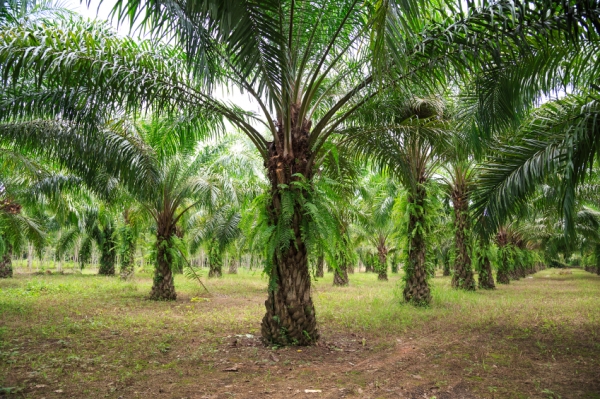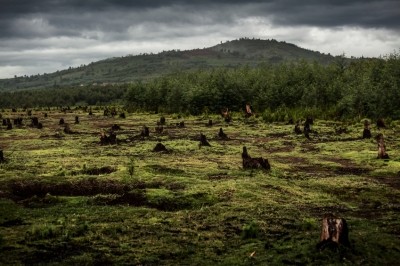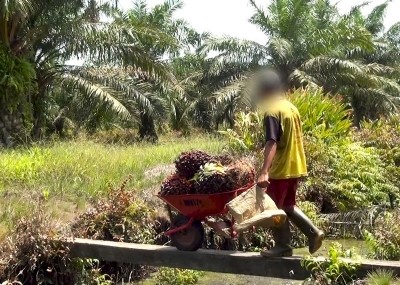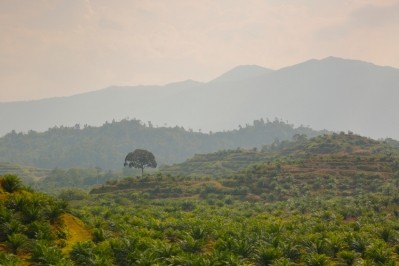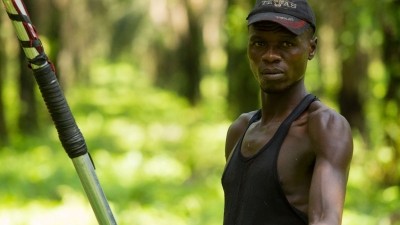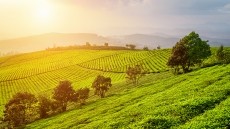Olam rejects green washing and 'black box' palm oil claims
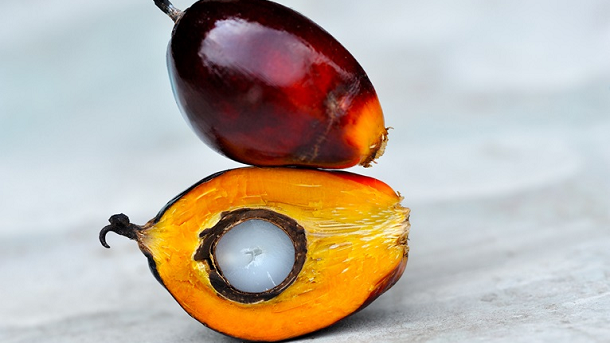
Washington DC-based environmental campaign group NGO Mighty Earth partnered with Gabonese NGO Brainforest to compile the report, which can be downloaded here.
A lack of transparency over suppliers is at the core of Mighty Earth's complaints. It says over 99% of the palm oil traded by Olam in 2015 came from its own plantations, sourced instead from third party suppliers.
In a detailed response published on its website, the agri-food giant said its development in Gabon and failure to sign a no-deforestation commitment that
adheres to High Carbon Stock forests (HCSA) methodology needed to be seen in the context of a country where nearly one third (32.7%) of the populations lives at or below the poverty line according to the World Bank, and where 90% of the country is covered in forest.
Sunny Verghese, Olam International’s co-founder and CEO said: “Gabon has a right and an essential need to develop its agriculture sector to diversify its economy, improve food security to feed its people and create new livelihood opportunities, while also protecting its natural forests."
Verghese added that all of Olam’s suppliers adhered to its code, which includes a zero tolerance clause for the burning of forests, and it would be releasing its full list of suppliers.
'Black box' trader
The report drew other conclusions. “Olam failed to publicly disclose any of these suppliers, meaning that almost all of the palm oil it sells to global customers comes from unknown origins. And because Olam keeps its suppliers secret, it is impossible to know whether these suppliers are destroying protected rainforests, draining and developing on peatlands, or infringing on the rights of local communities around the world," said the report.
“Rogue companies continue to clear rainforest in violation of their customers’ policies and often government policy as well,” says the report. “They do so in the belief they can still find “black box” traders like Olam who will buy their product no questions asked, and then traffic it onto global markets where it can find its way into products like Burger King French fries, Krispy Kreme doughnuts, and Estée Lauder cosmetics.”
Olam’s customers include food manufacturers such as Nestlé, Unilever, Mondelez, and PepsiCo.
Olam said its third party palm sourcing accounts for only 0.4% of global palm volumes in 2016. According to Mighty Earth, the company handles around 2.5% of all global palm oil.
By both accounts Olam is still a small player compared to other palm oil operators, although it is growing. Between 2011 and 2015, the volumes it traded increased twenty-fold, from 71,000 tons to 1.53 million tons.
Significantly, however, Olam is one of the biggest palm oil trading companies that has yet to adopt a strong forest conservation and human rights policy in line with other Singapore-based firms, such as Wilmar International, Golden Agri-Resources, and Musim Mas – although revelations of child labour in Wilmar plantations that emerged last week – the company acknowledged “ongoing labour issues” in its supply chain – suggest talking the talk does not necessarily lead to firms walking the walk.
Deforestation and development in Gabon
Mighty Earth also says that Olam is exporting the palm oil industry's mistakes committed in Southeast Asia to Africa. Most of Olam's development in the continent development has been earmarked for Gabon, a country covered by 80% forest and a biodiversity haven for many endangered species.
It is doing this through joint public-private partnerships (PPPs) with the government of Gabon to develop the palm oil industry, which could mean Olam’s plantations become the largest palm oil operations in Africa. According to Mighty Earth, under the first joint venture, Olam secured 300,000 hectares of land for its plantations as well as rubber plantations, timber operations, fishing rights and a 16-year income tax ‘holiday.’
Through the second joint venture with the Gabonese government, GRAINE, Olam aimed to incentivise local farmers to become smallholder palm oil growers. According to Mighty Earth’s analysis of satellite data, Olam has cleared around 21,500 hectares of forest since 2012.
Gabon’s Minister of Agriculture, Yves Fernand Manfoumbi, said that through the public private partnership the Republic of Gabon and Olam are working to create jobs for rural people, diversify the economy of Gabon and contribute to global food security.
According to Olam, the government's medium term goal of establishing 300,000 hectares of agriculture would amount to around 1% of Gabon’s total national land area.
From Gabon to Singapore
Mighty Earth’s report also drew attention to the fact that Olam is majority-owned by government of Singapore through the country’s $242 billion public wealth fund Temasek. This is ironic, it said, as it means Singapore are unwittingly contributing to the deforestation that contributes to the haze and air pollution problems in Southeast Asia.
Mighty Earth called on Temasek to pressure Olam to adopt the industry standard for protecting HCSA and to make public the identity of its suppliers with their mill and plantation locations, and to share plantation maps.
However, a statement issued by Temasek deflected any responsiblity, saying Olam's operations were matters for the board and management of Olam to address and that, as a matter of proper governance, Temasek did not direct the business operations of its portfolio companies. It added that it fully supported no burn policies, and urged all palm oil companies to do the same.
Mighty Earth also called on minority investors to demand the same, or divest, and asked customers to switch to other palm oil traders with stronger sustainable standards.
A spokesperson from Mondelez said: "As a matter of practice, we don't name our palm oil suppliers. We require our suppliers to provide traceability to the mill for all the palm oil they buy, cease deforestation on their own plantations and engage their third party suppliers to cease deforestation."
Nestlé said: "We take concerns about deforestation raised in Mighty Earth’s report on Olam seriously. The palm oil we purchase from Olam is 100% traceable, 100% responsibly sourced and 100% RSPO certified. None of it is sourced from Gabon, about which concerns have been raised, coming instead from locations in Malaysia and Indonesia."
Nestle added it was already discussing the findings of Mighty Earth’s report with Olam to ensure the company’s actions and commitments match its expectations.
Kraft-Heinz said its trade with Olam did not include palm oil.

